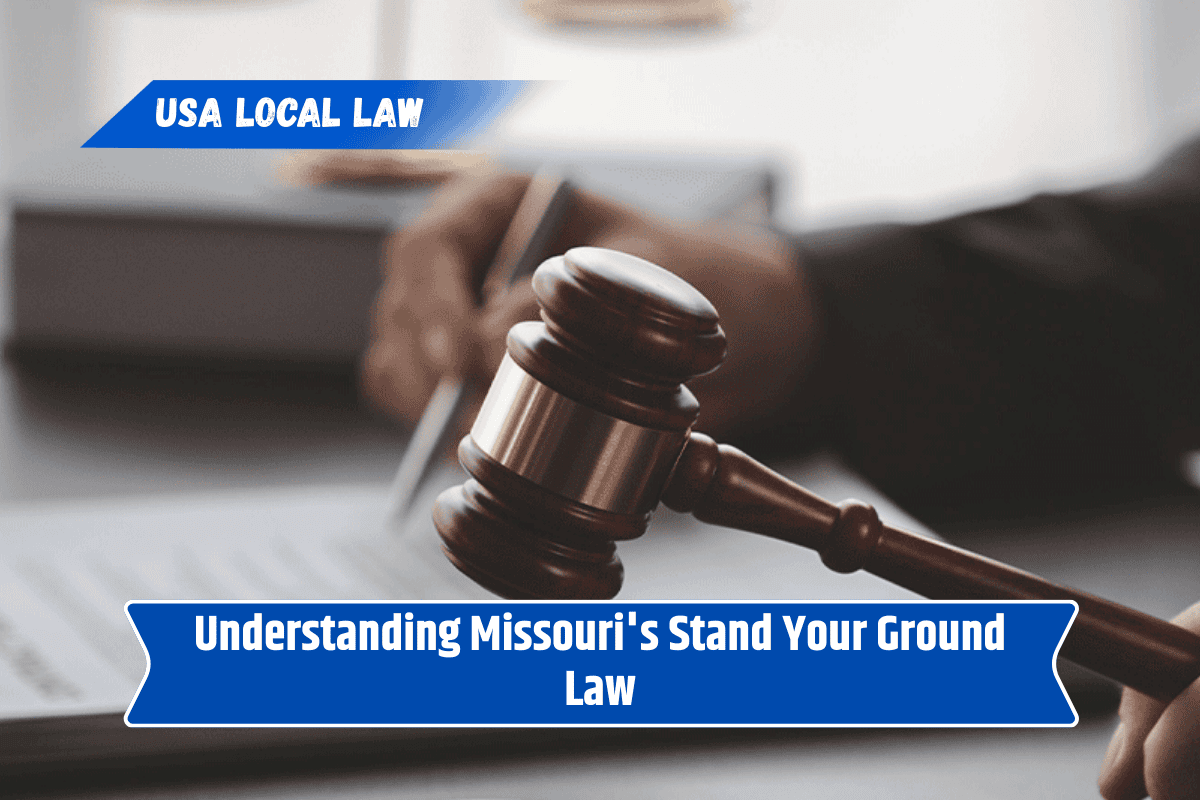Missouri’s Stand Your Ground Law is a significant aspect of self-defense law in the state. It allows individuals to use force, including deadly force, in certain situations where they feel threatened, without the obligation to retreat.
The law has stirred debate across the nation, but it’s essential to understand how it operates in Missouri and what it means for both residents and visitors.
What is Missouri’s Stand Your Ground Law?
Missouri’s Stand Your Ground Law is a part of the state’s self-defense statutes, which allow individuals to protect themselves without a duty to retreat when they are faced with a real or perceived threat. The law provides legal protection for those who use force in self-defense under specific conditions.
Key Provisions of Missouri’s Stand Your Ground Law
- No Duty to Retreat:
One of the central features of Missouri’s Stand Your Ground law is that individuals are not required to retreat from a dangerous situation before using force to defend themselves.
In other words, if a person feels their life or the safety of others is in danger, they can use force, including deadly force, without having to attempt to escape first. - Right to Use Force in Certain Situations:
Missouri law grants the right to use force (and deadly force) if a person is:- Confronted with an unlawful threat of force.
- Facing a situation where they believe they or others are at imminent risk of harm.
- In their home or business, where the law presumes the right to protect oneself against intruders or threats.
- Self-Defense in Public and Private Spaces:
While the law is well-known for protecting individuals in their homes (through “Castle Doctrine”), Missouri’s Stand Your Ground law extends to public spaces.
If you are in a place where you have a legal right to be, such as on public property, and you are threatened, you are not required to retreat before defending yourself.
Deadly Force and the Law
Missouri’s Stand Your Ground law allows for the use of deadly force in situations where an individual reasonably believes they are in immediate danger of death or serious injury.
However, the use of deadly force must be deemed proportional to the threat. For example, if someone is only verbally threatening you but does not present a physical danger, the law would not justify using deadly force.
The Castle Doctrine and Stand Your Ground
Missouri also adheres to the Castle Doctrine, which is part of the broader Stand Your Ground law. Under the Castle Doctrine, a person is not required to retreat when they are attacked in their own home, vehicle, or place of business. They are legally justified in using force to defend themselves against an intruder.
What Happens After Using Force in Self-Defense?
If you use force under Missouri’s Stand Your Ground law, the decision to protect yourself will be reviewed by law enforcement and possibly the courts.
The law provides immunity from prosecution in many cases, meaning that if a person is acting in self-defense, they cannot be charged with a crime, and prosecutors may not bring charges.
However, this immunity can be challenged, and it’s up to the court system to determine whether the use of force was justified.
The Impact of the Law
Missouri’s Stand Your Ground law has been controversial, with opponents arguing that it can encourage unnecessary violence or lead to situations where individuals escalate conflicts rather than de-escalating them.
Supporters argue that it protects people’s right to defend themselves and ensures they are not punished for choosing not to retreat in the face of a genuine threat.
Missouri’s Stand Your Ground Law gives individuals the legal right to use force in self-defense without the obligation to retreat when they believe they are at risk of harm.
While it grants broad protections, the use of deadly force must be reasonable and proportional to the threat.
As with any law, its application can be complex, and if you find yourself in a situation where self-defense is necessary, understanding the nuances of this law is crucial. For specific legal advice or guidance, consulting an attorney is always recommended.
